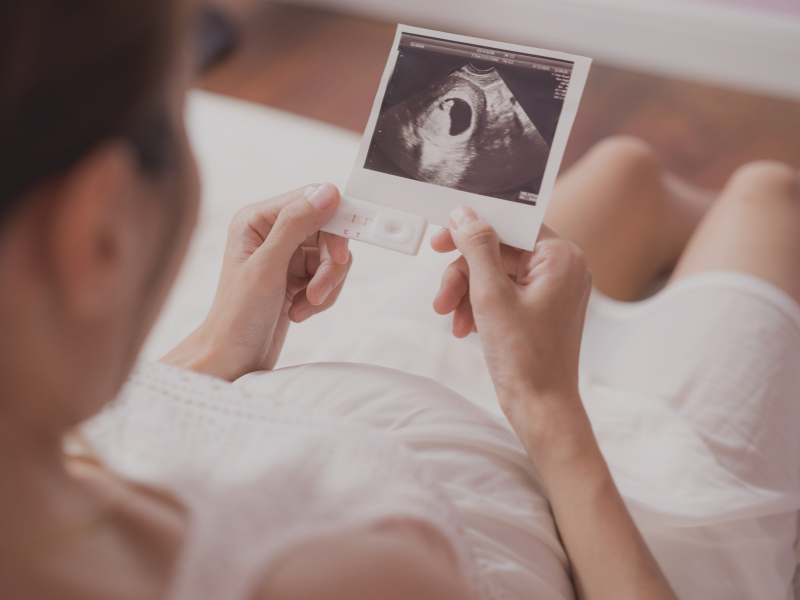For individuals who have undergone bariatric surgery, the journey towards parenthood can come with its own set of considerations and questions. The impact of weight loss surgery on fertility and pregnancy is an important topic that deserves attention and understanding. In this blog, we’ll delve into the effects of bariatric surgery on fertility and pregnancy, providing insights and guidance for those planning to start a family post-surgery.
The effects of bariatric surgery on fertility
Research indicates that bariatric surgery can lead to improvements in fertility for individuals struggling with obesity-related infertility. The mechanisms behind this improvement are multifaceted and may include changes in hormone levels, resolution of conditions such as polycystic ovary syndrome (PCOS), and enhanced reproductive function due to weight loss.
However, it’s essential to recognise that rapid weight loss following bariatric surgery can also impact reproductive health in some cases. Women may experience irregular menstrual cycles or temporary changes in hormone levels as their bodies adjust to the post-surgery changes. Therefore, it’s crucial for individuals considering pregnancy after bariatric surgery to work closely with their healthcare team to optimise their fertility and ensure a healthy pregnancy journey.
Male fertility and bariatric surgery
While much of the focus is often on female fertility, male reproductive health is equally important. Obesity can impact sperm quality and reproductive function. Bariatric surgery may lead to improvements in hormonal balance and overall health, positively influencing male fertility.
The ideal time for pregnancy
Best practice is to postpone pregnancy until 12-18 months after surgery, and when your weight is stable– i.e. little or no movement for 2-3 months (not just a few weeks). If you have had a Gastric Bypass or Sleeve Gastrectomy, remember that oral contraception is not as reliable anymore, so it is best to choose either an intra-uterine device (IUD) (e.g. coil) or implant.
Planning for pregnancy after bariatric surgery
If you’re considering pregnancy after weight loss surgery, it’s essential to take proactive steps to support your reproductive health and overall wellbeing. Bariatric surgery can affect nutrient absorption, potentially leading to deficiencies in essential vitamins and minerals. When you start trying to conceive, change your daily A-Z Multivitamins and Mineral supplement to one of the following pregnancy-specific options. These contain Vitamin A in the safe retinyl-palmitate form, rather than the retinol form. They also contain the correct amount of folic acid, unless your BMI is 30kg/m or higher and/or you have type 2 diabetes mellitus. Continue with any other vitamin and mineral supplementation, Including vitamin B12 injections, in line with advice from your dietitian.
Monitoring weight gain
While weight gain is a natural part of pregnancy, individuals who have undergone bariatric surgery may need to monitor it closely. Your healthcare team can establish appropriate weight gain targets based on individual health and surgical history. Striking the right balance is essential for a healthy pregnancy and postpartum period.
Safe amounts of weight to gain over pregnancy (gestational weight gain, or GWG) according to the Institute of Medicine in USA (IOM):
| Weight category | BMI | Recommended GWG | 2nd & 3rd trimester |
| Underweight | BMI <18.5kg/m2 | 12.5 – 18kg | 0.5kg/week |
| Healthy weight | BMI 18.5kg – 25kg/m2 | 11.5 – 16kg | 0.4kg/week |
| Overweight | BMI 25-30kg/m2 | 7 – 11kg | 0.3kg/week |
| Obese | BMI >30kg/m2 | 5-9kg | Not specified |
Risk and complication awareness
Bariatric surgery may influence certain aspects of pregnancy, including an increased risk of nutritional deficiencies and gestational diabetes. Regular prenatal check-ups and close monitoring by healthcare professionals are crucial to detect and address any potential complications promptly.
Foods and drinks to avoid during pregnancy
- Alcohol: remember – what you drink, your baby drinks. Drinking alcohol is linked to early miscarriage, premature birth, restricted growth and brain development in the womb and foetal alcohol syndrome.
- Raw shellfish: e.g. oysters, may give you food poisoning. Cooked shellfish are fine including cold pre-cooked prawns.
- Sushi: the raw fish, but also if the rice is left at room temperature bacteria could be a risk.
- Undercooked ready meals: there is a risk of listeria so follow the cooking instructions and make sure they are piping hot, especially for meals that contain chicken or fish.
- Raw or undercooked meat: this includes meat, fish, chicken, sausages, minced meat, burgers, chicken drumsticks and meat pies. The risk is Toxoplasmosis which is a tiny parasite that lives in raw meat.
- Raw cured meats like salami, Parma ham, chorizo and pepperoni. The risk is low but it is safest to eat only well cooked meats while pregnant.
- Liver and all products containing liver: liver pate, liver sausage, these products contain high levels of retinol or vitamin A. It is also not safe to take a multivitamin and mineral supplement containing vitamin A in the Retinol form or fish liver oils such as cod liver oil.
- Pâté: avoid all types of pates including vegetable pate – these could contain Listeria and high levels of vitamin A like stated above.
- Certain cheeses: Listeria bacteria can cause an infection called Listeriosis which can be harmful to a baby during pregnancy or cause severe illness in new-borns, so avoid eating: Mould-ripened soft cheeses like Brie and Camembert and others with a rind like goats and sheep’s cheeses, Soft blue veined cheeses like Danish blue cheese, Gorgonzola and Roquefort.
- Unpasteurised milk and dairy products: all milk sold in the UK in shops and restaurants have been pasteurised and are fine to drink. But you may come across unpasteurised products at farmers’ markets or when you are abroad on holiday. This includes unpasteurised sheep or goat’s milk or cheese.
The positive impact of weight loss on fertility, hormonal balance, and overall health can contribute to a smoother journey toward parenthood. By understanding the potential effects of weight loss surgery on fertility and pregnancy and taking proactive steps to optimise your health, you can increase the likelihood of a healthy pregnancy and positive outcomes for both you and your baby. Remember to communicate openly with your healthcare team and don’t hesitate to ask questions.



